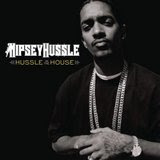Hey People!
This show was another banger. If you haven't gotten the chance to hear it you need to definitely take a listen. As usual we dropped some serious heat along side of some serious industry insight and marketing and financial tips.
 MONEY & MUSIC SHOW - GET YOUR FINANCIAL TIPS RIGHT HERE! for another heavy session on how to take your business & financials to the next level.
MONEY & MUSIC SHOW - GET YOUR FINANCIAL TIPS RIGHT HERE! for another heavy session on how to take your business & financials to the next level.
This weeks marketing topic was "Know Your Consumer"
Targeting Your Market
Overview
Imagine practicing archery with your eyes closed or throwing a football with a blindfold on. In both cases, being prevented from seeing your target would make it nearly impossible to hit it. This concept can easily be applied to business, as well. Doing business without knowing what your target market is will prevent you from reaching your objectives: increased sales, market share or brand awareness.
Outline:
I.Identify Potential Customers
II.Conducting Market Research
III.Choosing a Target Market
IV.Compiling a Customer Profile
V.Resources
I. Identify Potential Customers
There are two types of customer groups that you can target: individual consumers or other businesses. Individual consumers are some what more difficult to target because they are diverse and unpredictable, they typically have small individual budgets, and their buying preferences may change as they age. Businesses as a target market tend to be fairly stable over time and have large budgets to spend on various products and services.
II. Conducting Market Research
There are many sources of market research — much of which is free of cost — that have already been compiled that you can draw from for basic information about your prospective customer group. Search the Internet and your local library for studies and data that have been gathered for your particular industry.
III. Choosing a Target Market
After you have conducted a sufficient number of surveys, compile the results to determine which markets make the most sense for your business to target. Ensure that the market you choose:
has easy access to your products and services, whether it is by visiting your store, or ordering by phone, fax, email or your Web site
is not inundated with other products and services that are indistinguishable from yours is willing to pay a price for your products and services that allows you a reasonable profit margin
IV. Compiling a Customer Profile
Just as a mission statement guides the operation of your company, a customer profile will guide your sales effort. Develop an overview of your target customers so that you and all of your employees are clear about whom you are selling to.
Investment Basics, 101
On this week's segment "Ya Financial Partna" "Money" Mike, did his thing as always, but instead helped drop some basics to beginning your Investment Plan. He stressed the importance of understanding, 3 Basic Principals about your self and what your Adviser needs to know about you, when setting up an investment program. As always, he Keeps It Simple (but stressed you are NOT Stupid! when you ask Questions, but instead WISE) and should always ask Questions when you don't understand something, from any professional. This is Rule #1, make sure you understand what someone is telling you before you do anything with your MONEY. You know how hard it is to make that dollar, so it should be just as hard to ever lose it. So protect yourself and understand the basics of Investments, and those that don't ask the same of you, well you know where to RUN, you got our email: moneyandmusic@gmail.com, and "Money" Mike will continue to be a resource for us. So if it sounds smelly, find out first shoot us an email or call in.
When determining your overall investment objective, you must carefully consider your response to three key questions. Let's take a look at each one in order.
1. What's the purpose of the investment?
In other words, why do you want to invest your money in mutual funds? Are you going to use them as a substitute for a traditional bank savings account? Do you want to accumulate money for retirement, your child's education, or a down payment on a house? Or are you trying to supplement the return from a risk-free investment vehicle such as a bank certificate of deposit (CD)? Be specific when answering this question. You may find that you have more than one purpose for investing. If this is the case, you must think about the amount of money that you want to allocate for each purpose. Because there are few single mutual funds that can successfully satisfy multiple investment objectives, you may be looking at the possibility of investing in several different funds.
2. What's your time horizon for the investment?
How long do you intend to leave your money invested in a fund; or, over what period of time do you plan to continue investing regularly in a mutual fund? Again, it's important to clearly define your answer. You must consider your own age when establishing your investment's time horizon. Generally speaking, the younger you are, the more growth-oriented your investments should be. Because your time horizon is long, you can withstand the inevitable cyclic downturns and profit over the long term because historically the investment markets have always moved higher. As you age, you should periodically adjust the mix of mutual funds in your portfolio to favor more conservative funds that focus on the preservation of capital and also possibly provide a steady stream of income. Adjusting your investment to fit your age is a dynamic process. Regularly- scheduled reviews (quarterly, semiannually or annually) are essential to maintain the proper mix of funds in your portfolio.
3. What's your risk tolerance?
How much risk are you willing to accept in return for a potential gain? Many investors assume that because most mutual funds are diversified, they're not subject to price fluctuations that are as great as those of individual stocks. Although this may be generally true, a specific fund's volatility could still be somewhat substantial. Some people can tolerate market drops better than others, and it's undoubtedly more distressing the older you get. If a 20- or 30 percent drop in the value of a particular mutual fund would disconcert you, then seek out a fund with less volatility. If you already own several funds, adjust the money you have allocated among them so that your overall risk is lessened. Or you can simply place your money in safer or risk-free instruments. Your goal in determining your risk tolerance is simple: to have as few sleepless nights as possible.
If you fail to clearly define your investment goals first, you increase the possibility of choosing a mutual fund (or whatever type of security you're interested in) that's less than best for your needs. Once your own goals are clearly in sight, you'll be able to match your investment purposes, time horizon, and risk tolerance to the specific characteristics and objectives of the fund that's most appropriate for providing the returns that you desire.
Now, do you need help in determining your Investment Profile, well we wouldn't be Money & Music if we weren't here to guide you in the RIGHT direction, so use this link and find out your Profile, TODAY!!!
http://www.sppclocal2001fopsco.com/Forms/InvestorProfileTest.doc
"It's not how much money you make, It's how protected is your money"





.jpg)



.jpg)







.jpg)




.jpg)





.jpg)

.jpg)






































.jpg)



No comments:
Post a Comment